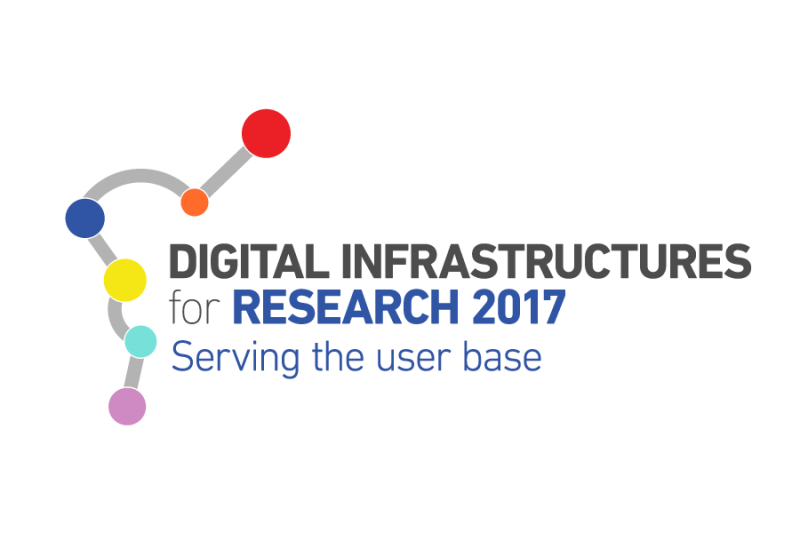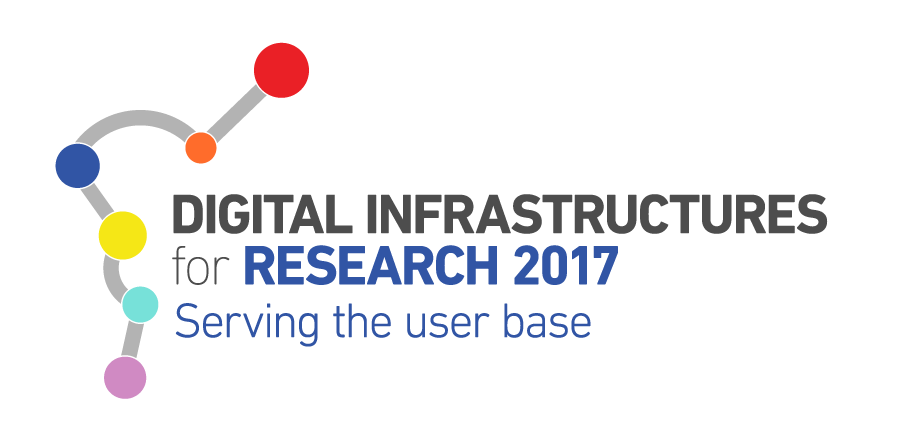
 |
The Digital Infrastructures for Research 2017 (DI4R) event will take place on Thursday November 30th and Friday December 1st 2017 in Brussels, right after the EOSCpilot 1st Stakeholder Engagement Event (28.11 & 29.11), aiming to bring together researchers, developers and service providers, in order to brainstorm under the theme “Connecting the building blocks for Open Science”.
|
|
|
|
The presentation is about SeaDataCloud, a new project funded by the European Commission to considerably advance the SeaDataNet Services and increase their usage and adoption of cloud and High Performance Computing technology for better performance. The SeaDataCloud project has recently entered into a strategic and technical cooperation with the EUDAT Collaborative Data Infrastructure consortium, with which it will collaborate to build upon the state of the art in Information and Communications Technology (ICT) and e-infrastructures for data, computing and networking for the SeaDataNet community. The aim of the partnership with EUDAT is to increase considerably the number of users and transactions by expanding and engaging potential user communities by promotion, dissemination, development and demonstration of use cases, and organising workshops, encouraging use of the online tools and services, adoption of common principles such as data sharing, and collaborative research. |
|
|
|
This presentation focuses on building FAIR semantic resources and the main challenges that come with it, mainly the interoperability of the semantic resources both at the metadata level and the API level and the discoverability of these resources. This presentation will introduce an international and multi-disciplinary collaborative effort initiated by the EUDAT Semantic Working Group and driven by the RDA Vocabulary and Semantic Service Interest Group, that aims at addressing the interoperability and governance of semantic resources challenges, as well as the proof-of-concept service developed by EUDAT to support discoverability and aggregation. This service, called the Semantic Look Up service (Goldfarb and al., 2017), allows semantic providers to publish a description of their resource which will be used to index their content. The presentation will be followed by discussion on the future of this effort. |
|
|
|
This session will provide an overview of how a set of pioneering initiatives are already putting into practice the vision of the thematic EOSC in different domains. It will address aspects of federation, networking and coordination of RIs for the purpose of improving the services provided to research communities and increasing cooperation, sharing and reusability across them. The session will also present a great opportunity for the projects to identify collaboration opportunities, to understand if they can share resources to improve their services and to identify potential overlaps. |
|
|
|
The purpose of this session is to stimulate the debate upon perspectives for the European Digital Infrastructures to foster knowledge-building through massively distributed scientific corpora. Several aspects will be tackled, in particular, the advantage of deploying Trusted Digital Repositories (eTDR) in order to offer high quality data curation services. Keys of success for the future European Open-Science Cloud will depend on many factors such as efficient service interoperability as well as availibility of solutions to facilitate scientific collaboration. Three use cases will be presented to illustrate success stories and forthcoming projects.
This session is suitable for people interested in both interoperability between services from different infrastructures and initiatives at different levels (areas 1) and topics on the development and provisioning of services and solutions needed to enable researchers to collaborate and share resources in a federated environment (area 5). |
|
|
|
Data Loss Prevention (DLP) aims to identify and restrict access to non-public information, such as confidential information and personal data – as required by the General Data Protection Regulation (GDPR). Research infrastructures face significant challenges due the complex spectrum of formats and platforms for research data. We will discuss available operational solutions to implement and monitor DLP and highlight the community driven policy frameworks developed through WISE (Wise Information Security for collaborating E-infrastructures). Urpo Kaila is co-authoring with Dr. Sven Gabriel the presentation "Evolving Operational Security for the EOSC era" in the same session. |
|
|
|
The presentation is about eduTEAMS, a suite of AAI services, which enable the integration of users from a wide range of environments, connecting them to specific services (such as instruments), and also to other generic services such as storage and compute provided by eInfrastructure providers or even commercial entities. |
|
|
| This lightning talk focuses on the issues that have been uncovered trying to engage SME’s in the use of the EUDAT collaborative data infrastructure, the main challenges, the SMEs commercial interests, rules of engagement and potential need for customization of services. |
